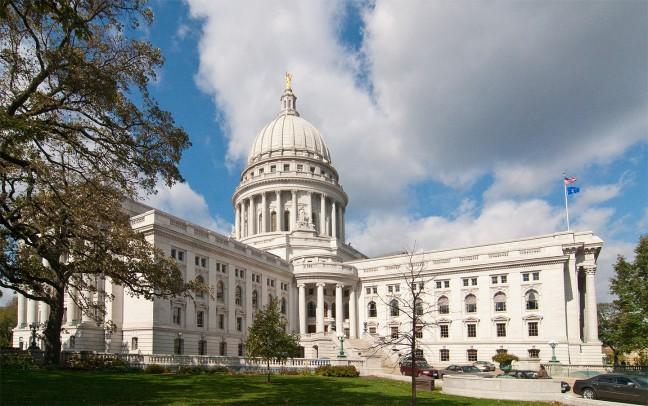Three district attorneys have made an appeal to the U.S. Supreme Court on the decision for the John Doe II investigation into Gov. Scott Walker’s 2012 recall election campaign.
In the John Doe II case, Walker was accused of illegally coordinating with conservative groups to raise money for his recall election. Walker was acquitted from accusations and the investigation was halted in July 2015.
What is John Doe?
John Doe is a secret investigative procedure in which the names of parties in a case are kept private until the investigation closes, Barry Burden, a UW political science professor, said.
Burden said the strongest basis for the District Attorney’s appeal is a potential conflict of interest for four of the six Wisconsin Supreme Court Justices who made the decision.
The conservative justices received $8 to $10 million in campaign contributions from Wisconsin Club for Growth, one of the organizations investigated for illegal campaign coordination with Walker in John Doe II, Jay Heck, Common Cause executive director, said.
Burden said the justices should have recused themselves from the case, which they failed to do.
“At the time the Supreme Court was considering the case, several people suggested those justices ought to recuse themselves, and they didn’t,” Burden said. “It’s possible that the U.S. Supreme Court would look at the case and want to review it for that reason.”
The alleged illegal coordination in John Doe II has now been made legal because of recent bills Walker signed into law.
Campaign finance reform moves Wisconsin elections in ‘direction of Wild West’
If the appeal is successful, the case investigating Walker could be re-opened, possibly on the federal level, Heck said. But, it would have to be investigated through a Grand Jury — not through the John Doe process — because John Doe investigative procedures can no longer be used to investigate political crimes.
Investigating political corruption
Heck said John Doe probes have historically been the most effective way to investigate political corruption — more effective than the Grand Jury process used by all other states in the nation.
Burden said John Doe was an essential tool prosecutors in the 2001-02 caucus scandal used to unveil political corruption on both sides of the aisle.
But Rep. David Craig, R-Big Bend, author of the bill that limited John Doe probes, said gag orders preventing witnesses and targets from speaking to friends and family about investigations violated free speech, which is likely why no other state uses John Doe.
“Based on the constitution you can’t just have a blanket gag order like that,” Craig said.
John Does could also be used by prosecutors as political “witch-hunts” to go after politicians whose policies they disagreed with, Craig said.
John Doe sparks controversy
But Democrats called Craig’s bill the “Corrupt Politicians Protection Act,” and said the limits on John Doe weren’t for free speech, but rather served to exempt politicians from the law by getting rid of John Doe procedures for political crimes.
“The bottomline is this: their bill will exempt the crimes they’re most likely to commit from such investigation,” Rep. Andy Jorgenson, D-Milton, said in a statement.
Craig said if it were up to him there would be no John Doe investigations in Wisconsin, but John Doe was kept in place only for circumstances in which it’s absolutely necessary.
These cases were determined to be class A to D felonies, egregious crimes where an element of secrecy is needed like with sexual assault, murder or other armed crimes.
“These [John Doe probes] are for the most serious of situations, where prosecutors told us they needed the John Doe,” Craig said.
Transparency in state government
The elimination of John Doe is just one aspect contributing to lack of transparency in Wisconsin government.
Burden pointed to the rewriting of campaign finance laws that make it easier for “dark money” to flow into campaigns from outside groups. Burden also expressed concern for the destruction of the Government Accountability Board, a non partisan group that oversaw election and campaign finance laws.
Heck said Wisconsin’s government is becoming less open.
“We’re going in the opposite direction of the way that we should be going,” Heck said. “Wisconsin was at one time … a model for the rest of the nation for honesty, transparency [and] openness. All of those things have now been systematically dismantled or destroyed.”
Heck said he believes the U.S. Supreme Court will make a decision on whether to take up the appeal for John Doe II sometime before June 2016.














